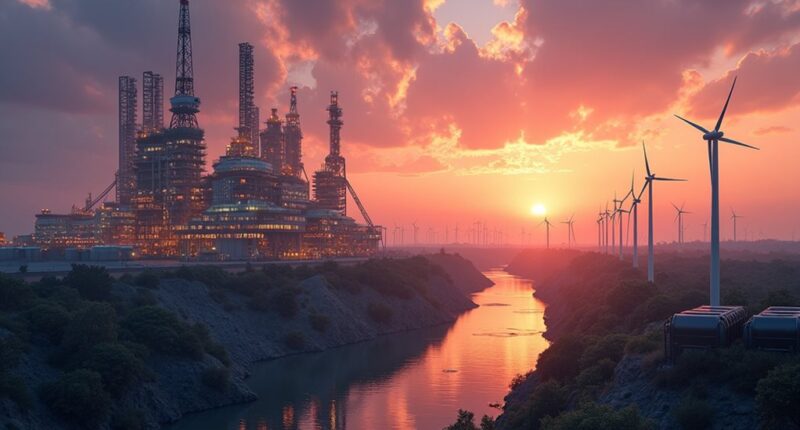Oil companies are joining forces with innovative startups to supercharge carbon capture technology, a necessary move in the fight against climate change. With billions at stake, they’re acting like a buddy cop duo tackling a big heist—except the treasure is cleaner air. These partnerships aim to increase carbon capture from a mere 45 million tons to something much grander. But here’s the kicker: will they save the planet, or is it a double cheeseburger chase after all? Discover more about their exciting plans!
Oil Companies and Startups Unite for Carbon Capture
In a world increasingly aware of its carbon footprint, oil giants are stepping into the limelight, not just as purveyors of fossil fuels but as unlikely champions of carbon capture technology. These companies, often seen as the villains in the climate change narrative, are investing billions in projects aimed at sucking carbon dioxide from the atmosphere and stashing it underground, like squirrels hoarding nuts for winter.
Occidental Petroleum, for instance, is pouring funds into its Stratos complex, a facility designed to clean up our air one carbon molecule at a time. Major players like ExxonMobil and Chevron are on board too, integrating carbon capture technologies into their operations while forming partnerships with innovative startups. Current global carbon capture capacity is about 45 million tons of CO2 per year, which underscores the urgency for scaling up these technologies. The UN’s IPCC warns that existing fossil fuel infrastructure will exceed safe global warming limits without carbon capture, highlighting the critical need for these initiatives.
Oil giants like Occidental, ExxonMobil, and Chevron are investing in carbon capture technologies, teaming up with innovative startups to tackle climate change.
This collaboration is like a buddy cop movie where the seasoned cop (the oil giant) teams up with the tech-savvy rookie (the startup) to take down climate change. Together, they’re fueling the development of Direct Air Capture and Carbon Capture, Utilization, and Storage (CCUS) systems at lightning speed.
But here’s where the plot thickens: oil companies are using captured carbon to enhance oil recovery. Think of it as giving aging wells a second chance at life, injecting CO2 to coax out even more oil. Critics argue this practice is akin to putting a band-aid on a bullet wound, as it may undermine the climate benefits of capturing CO2.
It’s the climate version of eating a salad while chasing it down with a double cheeseburger. Despite the skepticism, the economic landscape is shifting. Federal incentives are making carbon capture more appealing, with the potential for hefty credits for companies that store CO2 permanently.
These strategies complement more traditional approaches like forest management which naturally sequesters carbon dioxide through photosynthesis.
As businesses scramble to meet net-zero goals, the demand for carbon removal credits is skyrocketing, turning this once niche market into a hot commodity. In this evolving narrative, oil giants and startups are reshaping the future of energy and climate action.
Will they rewrite their roles as climate heroes or remain the reluctant sidekicks? Only time will tell.









